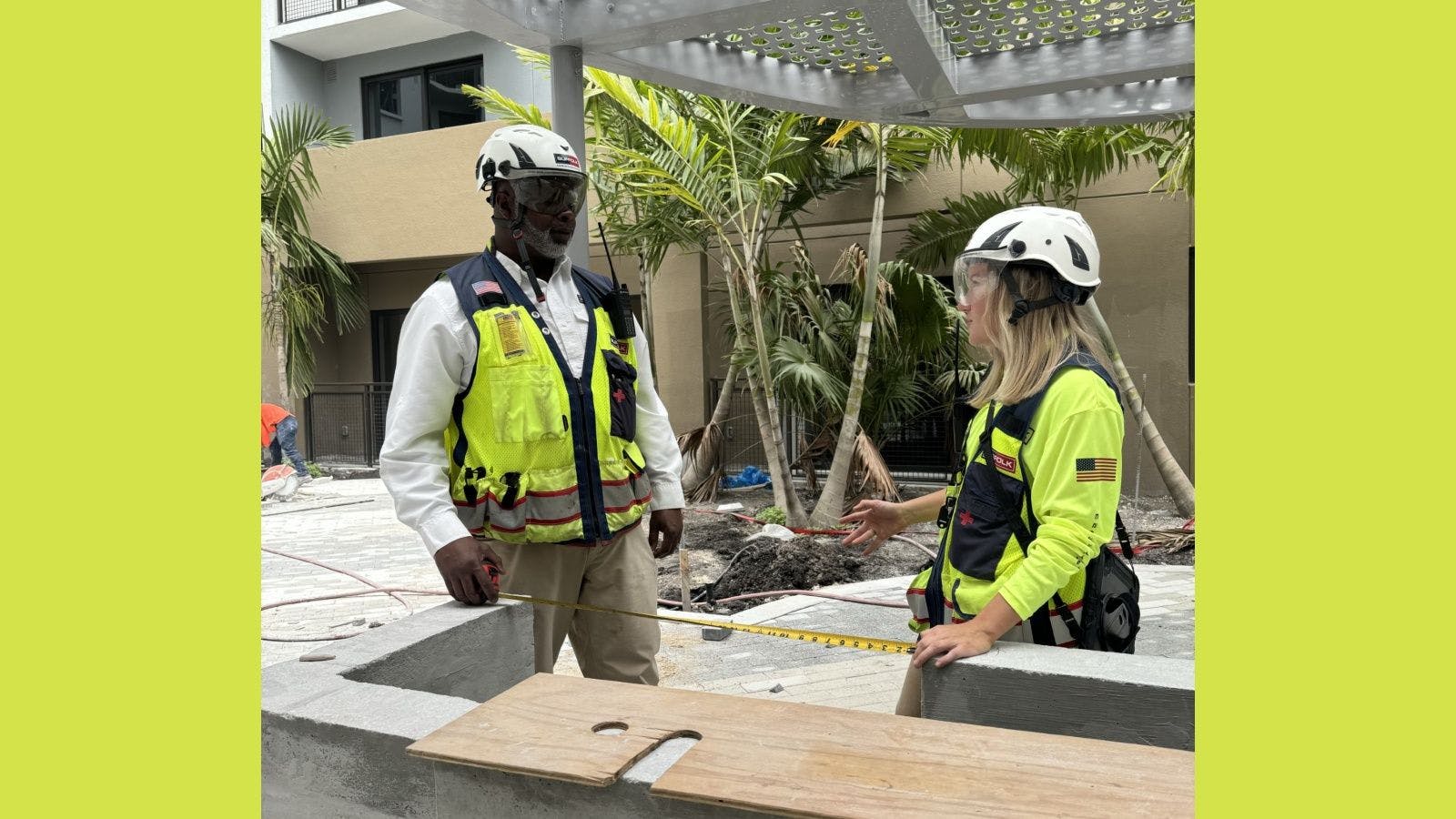
Scouting Report
Employers plan to hire 26.6% more new graduates from the class of 2022 than they did from the class of 2021, according to the National Association of Colleges and Employers’ “Job Outlook 2022” report. That’s good news for college-degreed job seekers and the traditionally white-collar organizations that hire them, but how do contractors and construction companies facing a 650,000-worker deficit find the best talent?
While initiatives are in place to introduce students to the trades in middle school and high school—and while creativity abounds in existing training and apprenticeship programs— finding adult workers who are interested in a construction career is as likely as the U.S. men’s national soccer team winning the World Cup. The players are talented and they possess the equipment for success, but other teams simply play a better game.
That’s where Game Plan comes in. Partnered with more than 800 college athletic departments and five professional sports leagues, Game Plan connects student athletes ages 18 to 23 with companies to find the right career fit. In addition, Game Plan Academies is a certification-based skills program that allows athletes to prepare for a life after sports—and for employers to recruit them.
MAKING A PLAY
Vin McCaffrey, chief executive officer and founder of Game Plan, came to the idea quite naturally. A former student athlete himself, McCaffrey landed in unfamiliar territory when he was suddenly cut from the men’s basketball team during his senior year at Lehigh University in Bethlehem, Pennsylvania.
“I became an athlete because my dad was an athlete and he coached,” McCaffrey says. “It was no fun to be cut as a senior; it’s not a great experience by any stretch of the imagination. But now, looking back, we deal with hundreds of thousands of athletes who have been through similar, difficult athletic experiences. This company is definitely personal for me.”
McCaffrey was born in Philadelphia, but his family soon uprooted to Utah, then returned to Philly. McCaffrey found stability in sports—and in seeing his father’s dedication to a career in construction. “My dad grew up in the trades, prior to coaching, and then after college athletics and coaching experiences transitioned back into the industry,” McCaffrey says. “He even started his own company, Tomorrow’s Promise, which worked with underserved youth in Philadelphia, helping them to prepare for the skilled-trade world. We think about things the same way, you know. Go figure, right? Dad and son.”
After graduating from Lehigh, McCaffrey entered corporate America. He worked for Lexmark, the Marwood Group and Ricoh Corporation in various sales and corporate-development roles. “When I was fortunate enough to get into the managerial roles, I was hiring a lot of college athletes,” McCaffrey says. Just like himself, “they had these good, transferrable skills. They were really team-oriented and goal-focused.”
Those skills work for construction, too. “In construction, the demands are real. Understanding how to receive feedback, how to lay out a plan, how to evaluate performance, how to take a long-term view—those are all not new to any athlete,” McCaffrey says. “Those preparation points give you a Ph.D. in managing your time. I think they’re qualified for any jobs they are skilled at and have an interest in.”
HERE FOR THE RIGHT REASONS
Founded by McCaffrey in Greenville, North Carolina, in 2008, Game Plan has transformed over 15 years into a platform that integrates e-learning, mentorship and career services for sports organizations, including the National Football League, the National Basketball Association and the National Hockey League. In 2022, Game Plan partnered with the National Junior College Association.
“When we work with an athletics organization, all of those student athletes are entered into our platform,” McCaffrey says. “They build out career-based profiles, and, on the flip side, employers are able to position their brands in front of those athletes to help them understand the career opportunities available.”
More employment “dating site” than marketplace—including a “day in the life” scenario of what the workplace and culture will be like at each employer, so potential employees can “match” with those they like—Game Plan is distinguished by what McCaffrey describes as its “focus on the educational side.” Training programs range from compliant rules of professional college leagues to sexual-violence prevention to sports wagering (dos and don’ts) to what makes a healthy relationship. Athletes can even expand into financial literacy and certifications. “We think it’s critical that it isn’t just skills-based education,” McCaffrey says. “It’s weaving in the direct engagement with the employer. These are true, hard skills they can transfer into the workforce."
On the employer side, the platform offers access to a previously underutilized employment source. Companies can drive applications with detailed information about compensation, culture, industry, location, role function and more, moving past rote job descriptions and enabling not only recruitment but retention. “When I was a kid, I worked at Merrill Lynch one summer,” McCaffrey says. “It was a great experience, but if I read the job description versus the work I did, they couldn’t have been further apart. That’s always stuck in my mind, which is why we want to break down the common job description to actually tell the prospective candidate what the role function is and align interests.”
LINE OF SCRIMMAGE
Why aren’t college athletes more sought after in the construction industry? The answer is complicated. First, they’re extremely busy. Away games, practice and class don’t allow for extracurriculars, including career planning. “Across the board, student availability is really limited,” McCaffrey says.
Second, employers aren’t looking in the right places. “Traditionally, when employers come to campus, they enter through career services,” McCaffrey says—but data from Game Plan shows that 9 out of 10 athletes don’t contact career services. Third, career fairs miss the mark. “You might get three to five athletes in that instance,” McCaffrey says. In addition, these scheduled events often conflict with packed athletic schedules.
Anyone looking to recruit athletes will need to focus on mentorship and guidance. While athletes come with desirable interpersonal skills that give them a leg up when finding a job, they need time to transition away from a sports-minded environment. Employers should personalize recruitment and consider that “loss of sport is a loss of structure,” McCaffrey says. “They just spent the last two to four years in an environment where their schedule is effectively built for them. Not to say that they can’t think for themselves, but they are used to being coached, used to everything being down to the minute.” Companies with planning and scheduling elements, therefore, such as construction, are a perfect fit for these candidates.
“The construction industry is a really hot market for [student athletes],” McCaffrey says. “We’re realizing that when we start to work with a young athlete and see them though the journey, we’re better positioned to help them, ultimately, on that career transition. Whether they pick two- year college or four-year college and whether they are a skilled worker or in construction management, there are a lot of opportunities out there for both students and employers."
Related stories








